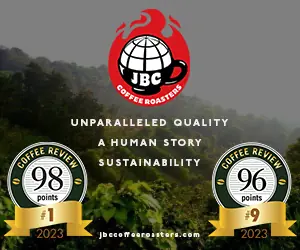Courtesy of Kenneth Davids, 21st Century Coffee: A Guide
As in Peru, Bolivia’s rugged terrain offers high growing elevations and fine terroirs for coffee, but the high elevations and rugged terrain also present daunting transportation and infrastructure issues. And, as is true virtually everywhere along the spine of the Andes, small producers dominate the industry and do the wet processing — the fruit removal and drying — on their farms. In the past, larger farms dominated Bolivia’s coffee industry, but more recently land redistribution reforms have returned land to mostly indigenous small holders, who now produce around 85% to 90% of Bolivia coffee. Overall Bolivia typically produces only a fraction of 1% of the world’s coffee, all of it Arabica.
Small Holders Prevail
As in Peru, past efforts to wean small-holding Bolivian farmers from coca production to coffee generated support from U.S. aid agencies that helped fund an array of programs aimed at organizing small holders, improving their coffees and helping them achieve organic and fair trade certifications. In 2012, almost all of Bolivia coffee was certified organic, most of it produced by cooperatives of small holders.
Many of these certified coffees were (hopefully still are) interesting and modestly distinctive in the cup, and their double advantage of interesting cup profile plus organic certification has brought them some recognition in specialty circles.
Hopefully that progress will resume after the election to president of moderate socialist Luis Arce in late 2020 promises an end to a period of political confusion and polarization.
Bolivia Varieties
Traditional Varieties.
Mainly Typica, well-naturalized to Bolivia terroirs, and the Latin American Typica variant called Criollo.
Newly Introduced Varieties.
Generally neither disease-resistant hybrids nor fancy varieties aimed at product differentiation have been much planted in Bolivia, although that has been changing. At this writing, at least one farm, probably more, are producing coffee from trees of the celebrated Geisha variety.
Bolivia Processing Methods
Traditional Methods.
Processing is performed by the traditional ferment-and-wash method, usually by small-holding producers on the farm.
Newer Non-Traditional Methods.
Occasional lots of carefully prepared natural- or honey-processed coffees have begun to appear in specialty markets.
Bolivia Growing Regions
Bolivia coffee is grown in the Yungas, a subtropical-to-tropical region of mountains and valleys descending from the very high-elevation altiplano, where the capital La Paz is situated, down toward the Amazon rainforest. A particular focus of USAID coffee development was the Province of Caranavi in La Paz Department, which is perhaps the reason why so many (often excellent) coffees from Caranavi have reached the North American market. But some fine Bolivia coffees also have appeared from Cochabamba Department east of Caranavi. Santa Cruz Department, farther east still, and Tarija Department, near the southern border with Argentina, also produce coffee.
The Traditional Bolivia Cup
Typical Global Descriptors (top specialty lots).
Crisp, rich, deep, balanced.
Common Aroma/Flavor Notes (top specialty lots).
Usually prominent chocolate (baking chocolate, dark chocolate, roasted cacao nib), almond, orangy citrus, lily or other heavily scented flowers, aromatic wood.
In the general context of Latin America coffee profiles, the best lots of Bolivia specialty coffee over the five or six years preceding the recent round of political troubles have been quietly but surprisingly distinctive. They often display unexpected nuance that probably derives from processing variations (deliberate or inadvertent) plus high-altitude, moist terroirs. They have not been pure coffees, but they have been interesting coffees.
Bolivia Coffee Ratings and Reviews
Click here for ratings and reviews of coffees from Bolivia.










